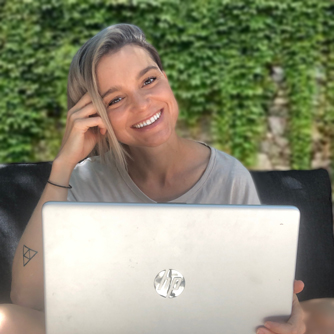If part of how you wind down from a busy day includes watching television, then you may find yourself falling asleep with the TV on from time to time. If this becomes a regular habit for you, it may leave you wondering whether it is, in fact, bad for you to do.
According to certain experts, the answer is “yes.” However, it is not as cut-and-dry of an issue as you might expect. In this article, we will go over the benefits and drawbacks of watching television before bed and answer some frequently asked questions on the topic.
Should You Fall Asleep with the TV On?
Much of the concern1 about watching television before bed has looked solely at the effects of blue light, which can impact your circadian rhythm. This light is emitted from any sort of screen– phones, tablets, computers, televisions, etc. – and much of the research has been largely indiscriminate of the light source. For example, it would look at watching television in the same way it looks at using Instagram.
However, there may be an important difference between the two: watching television is a passive activity2, which means it can be relaxing, whereas interacting on social media or playing a video game are more active forms of entertainment3. Although blue light negatively impacts the circadian rhythm, it may be that not all blue light exposure before bed screen is equally bad.
One recent study4 analyzed this very subject: they looked at a total of 74,525 participants who either watched television or used a portable electronic device (like a smartphone or tablet) before bed. The participants who only watched television before sleep did not have shorter sleep durations, but those who used portable electronic devices did.
Of course, watching something scary or tense before bed will be more likely to keep you awake as it causes the body to release adrenaline5. However, re-watching a favorite, comforting show6 has been shown to calm the body and mind.
If watching television before bed relaxes you and you’re able to sleep, then it could theoretically be fine to keep doing this. However, as mentioned, the sort of light that comes from televisions and electronic devices can have a negative impact on your sleep.
Effects of Light Exposure Before Bedtime
Screens, including televisions, computers, phones, some e-readers, tablets, laptops, and other portable devices, emit what is called “blue light7.” This light can be problematic closer to bedtime for several reasons.
Inhibits Melatonin
Blue light disrupts the production of melatonin.7 Melatonin is a hormone that is responsible for sleep. It reaches peak production right before we fall asleep, then gradually dissipates8 from our system as morning comes.
While any light close to bedtime can decrease melatonin production, research shows that blue light is particularly powerful at suppressing melatonin.7
Stimulates You
As mentioned, blue light is a particularly energizing frequency of light.7 This means that the best way to lower your energy levels at night is to limit your exposure to devices that emit blue light. If you need lights on at night, switch to red or orange lights. It can also be helpful to wear blue light blockers at night if you do want to watch television before bed.
Prevents Deeper Stages of Sleep
If you fall asleep with the television on and it stays on throughout the night, this constant emission of light can prevent you from fully entering the deep stages of sleep9. This is because the body’s circadian clock naturally responds to light.
To your body, light signals it is daytime, and that means the body should produce cortisol to be awake10.
Meanwhile, darkness signals that it is night, and that means the body should produce more melatonin to facilitate sleep.10 When the television light is on all night long, the body will think it is time to produce cortisol, hindering your ability to go into deep sleep.
In fact, sleeping with even a small amount of light is enough to activate the body’s fight-or-flight response, which would prevent it from fully relaxing into a state of deep rest.9
This is a big problem because deep sleep is when we repair injuries and the immune system, consolidate memories, and fully rest11 in order to wake up feeling refreshed.
Increases Risk of Chronic Illness
Disrupting the circadian rhythm with all-night light exposure can affect the body’s ability to appropriately secrete insulin. This can increase the risk of insulin resistance, diabetes, and other cardiometabolic problems.9
Can Cause Weight Gain
In 2019, researchers looked at a group of over 40,000 women who slept in a room with the TV or a light on. What they found was that these women had a 17 percent increased risk12 of gaining at least 11 pounds over the course of five years.
We mentioned above that light throughout the night impacts your body’s insulin resistance, and this could lead to weight gain13.
Frequently Asked Questions
Does watching television before bed cause depression and anxiety?
Many people turn to TV to relieve stress and anxiety, but the light that your TV screen emits late at night could be adding to mood disorders14 like depression and anxiety. If you feel like watching television at night is harming your sleep or mental health, we’d recommend switching over to a different nighttime ritual that doesn’t involve screens.
However, if television is the only way you can calm down before bed, you might try dimming the screen’s brightness, wearing blue light blockers, or setting it up on a timer so that it will turn off after a certain amount of time. You can also have a white noise machine going so that the room will still be filled with a comforting background sound.
Why does watching TV make me sleepy?
People often report that they’ll put on a television show or movie right before bed and they’re asleep before the end of the theme song or the opening credits. Interestingly, science backs this up. This is because within about 30 seconds15 of turning on the TV, the brain switches from beta brainwaves, which involve more vivid and conscious attention, to alpha brain waves, which are slower and encourage a state of restfulness.
Can watching TV late at night cause sleep deprivation?
Yes, watching TV late at night can cause sleep deprivation. Research shows that watching anything tense, suspenseful, or scary at night can activate the fight or flight response, release adrenaline, and make it more difficult to fall asleep.5
Staying up late to binge-watch a show can also keep you from getting to sleep. Science has found that binge-watching shows releases the neurotransmitter, dopamine16. Among its many other functions, dopamine inhibits melatonin production17.
Conclusion
While watching television before bed is a more passive activity that may allow you to sleep, the sleep you get may not be as restorative. Plus, if you’re watching stressful content or watching TV late into the night, this could lead to sleep deprivation.
With this in mind, if you can, it’s best to save TV time for earlier in the day or evening. If you need background noise to stay asleep, you might try putting on some white noise or even a calming podcast.
More Reading:

Natalie Grigson
Writer
About Author
Natalie is a content writer for Sleep Advisor with a deep passion for all things health and a fascination with the mysterious activity that is sleep. Outside of writing about sleep, she is a bestselling author, improviser, and creative writing teacher based out of Austin.
Side Sleeper
References:
- “How blue light affects your eyes, sleep, and health”. UC Davis Health. 2022.
- “TV and Toddlers”. Montreal Children’s Hospital. Webpage accessed August 25, 2023.
- Harper, Heather. “How “Passive Entertainment” is only a recent concept, historically speaking”. The Career Project. 2020.
- Nishioka, Takafumi., et al. “Effects of Screen Viewing Time on Sleep Duration and Bedtime in Children Aged 1 and 3 Years: Japan Environment and Children’s Study”. National Library of Medicine. 2022.
- “How Watching a Scary Movie Can Affect Your Sleep and Dreams—And What To Do About It”. UNC College of Arts and Sciences. 2021.
- “Press play: The link between stress and re-watching the same TV show on repeat”. Deakin University. Webpage accessed August 25, 2023.
- “Blue light has a dark side”. Harvard Health Publishing. 2020.
- “Melatonin”. Cleveland Clinic. Last modified July 5, 2022.
- Stone, Will. “Sleeping with even a little bit of light isn’t good for your health, study shows”. NPR. 2022.
- Brum, Maria Carlota Borba., et al. “Effect of night-shift work on cortisol circadian rhythm and melatonin levels”. National Library of Medicine. 2022.
- “Sleep”. Cleveland Clinic. Last modified June 19, 2023.
- Park MD, Yong-Moon., et al. “Association of Exposure to Artificial Light at Night While Sleeping With Risk of Obesity in Women”. JAMA Network. 2019.
- “Can Insulin Resistance Cause Weight Gain?”. Scripps.org. 2022.
- Bedrosian, T.A., Nelson, R.J. “Timing of light exposure affects mood and brain circuits”. National Library of Medicine. 2016.
- Gabriela, Ionaş. “Adolescents and the Influence of Mass-Media Means (TV and Video) Aspects of Psycho-Social Psycho-diagnosis”. Journal of Business Economics and Information Technology. 2015.
- “Binge Watching: Three Ways TV Affects Your Health”. Northwestern Medicine. 2021.
- “The role of dopamine in sleep regulation”. ScienceDaily. 2012.
